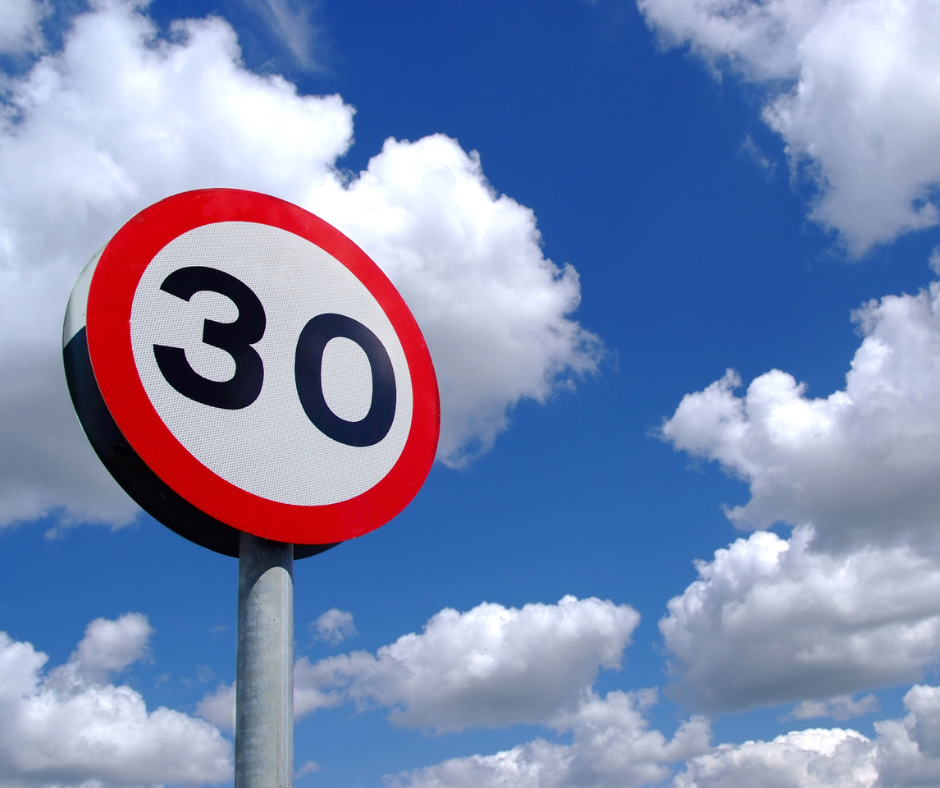Time to address van driver speeding epidemic
 Van driver speeding is at epidemic proportions, and a major safety and cost issue that needs to be addressed by the new Government, RED Corporate Driver Training believes.
Van driver speeding is at epidemic proportions, and a major safety and cost issue that needs to be addressed by the new Government, RED Corporate Driver Training believes.
Recent Department for Transport (DfT) figures showed that van drivers are the most likely group of drivers to speed in built up areas and on motorways, while it was unable to provide data on single carriageways roads due to the complex rules around speed limits for commercial vehicles. This, in itself, proves how little clarity there is around van speed limits.
DFT statistics showed that in free-flowing traffic in 30mph zones 45% of vans drivers were speeding, with 5% reaching speeds over 40mph.
On motorways, 47% of vans drivers exceeded the 70mph limit with 10% breaking 80mph. With around 4.5 light million commercial vehicles on UK roads, it means approximately two million of them could have been speeding on densely populated roads and motorways.
Read more on the HSM website.
River Seine pollution stops triathlon swim training
 Pollution in the River Seine has forced the cancellation of Monday’s swimming training for Olympic triathletes in Paris.
Pollution in the River Seine has forced the cancellation of Monday’s swimming training for Olympic triathletes in Paris.
This is the second successive day training has been cancelled after Sunday’s ‘familiarisation’ session was called off for the same reason.
A statement issued on Monday by Paris 2024 and World Triathlon said that tests had shown the water quality was still below an acceptable standard and the organisations wanted to “reiterate that the priority is the health of the athletes”.
The men’s triathlon is due to start on Tuesday and, should the water quality not reach the required standard on race day, the triathlon events have two contingency days – 1 and 2 August – built into the programme.
If the water quality is not deemed suitable on those days, the swimming leg of the triathlon will be dropped and it will become a duathlon, with athletes competing over just the bike and running legs.
Learn more on the BBC website.
Recycling company fined £3M after fatal incident
 A recycling company has been fined after a man died and another was seriously injured while decommissioning a North Sea gas rig.
A recycling company has been fined after a man died and another was seriously injured while decommissioning a North Sea gas rig.
Stephen Picken, 62, and Mark Kumar were working for Veolia ES (UK) Limited at an onshore facility in Great Yarmouth.
Both men were working as demolition operatives also known as “Top Men”, undertaking the decommissioning and dismantlement of offshore structures.
On 17 October 2019, the two workers were removing an overhanging piece of metal pipework (known as a skirt pile), weighing in excess of 27 tonnes, from a jacket (a structure placed in the sea, designed to support oil and gas rig platforms), when it gave way. The pile struck the mobile elevating work platform (MEWP) containing the men, throwing them to the ground about 12 metres below.
Stephen Picken died at the scene and Mark Kumar suffered serious life-changing injuries.
An investigation by the Health and Safety Executive (HSE) identified serious failings with the planning and the risk assessment which did not adequately cover the planned works. Shortcomings in supervision of the incident were also identified. The company did not risk assess the skirt pile being removed as it was considered low risk. As a result there was no cutting plan or safe system of work for the skirt pile.
For more on the incident, visit the HSM website.
Calling time on human trafficking
 IOSH renews calls for action to improve and enforce laws around human trafficking and other forms of modern slavery.
IOSH renews calls for action to improve and enforce laws around human trafficking and other forms of modern slavery.
Coinciding with World Day Against Trafficking in Persons on 30 July, IOSH urges businesses to ensure they are doing all they can to prevent human rights violations both within their organisations and in their supply chains.
The latest global estimates suggest nearly 50 million people were living in modern slavery in 2022. This includes those impacted by human trafficking, forced labour and forced marriage.
Visit the HSM website to read more.
To keep up to date with the latest health & safety news and advice, follow us on social media:
